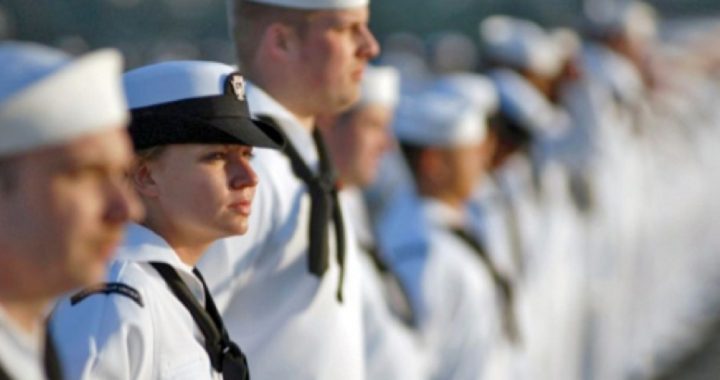
The U.S. Navy has denied the application of an atheist who was attempting to become the military’s first openly faithless chaplain. Jason Heap, who earned degrees from the UK’s Oxford University and Brite Divinity School at Texas Christian University, before abandoning his faith in favor of secular humanism, had applied to the Navy in 2013 to become a non-religious chaplain. At the time, he explained to the Los Angeles Times that as “both a humanist and a scholar of religion, I have a deep knowledge and understanding of world religions. My purpose and focus as a chaplain will be for holistic well-being of anyone who is in need of pastoral care.”
But the Navy’s chief of chaplains thought differently, concluding that the 38-year-old Heap’s education and credentials did not qualify him to dispense spiritual counsel to military personnel. A spokesman for the Navy explained that even with a proper religious worldview, Heap’s chances at making the cut for Navy chaplaincy wouldn’t have been stellar. “Due to the highly competitive nature of the board, less than 50 percent of the applicants could be recommended for a commission in the United States Navy,” said LCDR Chris Servello in a statement.
According to an earlier Fox report, a group calling itself the Military Association of Atheists and Free Thinkers had been incubating a plan for some time to pressure the Defense Department into allowing an atheist chaplain, with the group originally prepared to front its own president, Jason Torpy, as the candidate of choice. “The chaplaincy risks much if they declare themselves available only to those who profess a God belief,” Torpy told the Los Angeles Times in 2013. “That noble mission should not shrink to ‘God only’ when a humanist comes calling.”
Some congressmen have felt so strongly about the sacred nature of the chaplain calling that they have recommended legislation to prohibit the Pentagon from allowing non-believers from serving in that capacity. “By definition, chaplains minister to the spiritual needs of our men and women in the Armed Services, a vital function that an individual without an inclination towards spirituality would not be able to perform,” observed Representative John Fleming (R-La.), one legislator who has proposed legislation.
Fleming called the idea of an atheist chaplain “total nonsense,” noting that “a chaplain is a minister of the faith, someone who believes in a deity and a spiritual life who is assigned to a secular organization.”
In an open letter published by the American Humanist Association, Heap insisted that there is a place for godless chaplains in the military. “Thousands of our men and women in the services have their own life stories and issues they wish to speak to a chaplain about, but are unable to … because they do not have access to a nontheist chaplain,” Heap wrote. He argued that “just as a Roman Catholic would prefer to speak with a priest, or a Jewish person with a rabbi … nontheist people would prefer to have access to someone who understands their basic points of view.”
In an interview with Religion News Service, Heap claimed that serving as an atheist chaplain would represent “my chance to give back to my country. I want to use my skills on behalf of our people in the service.”
Heap offered no comment after the Navy announcement, but Tropy expressed his group’s disappointment, as well as his hope that the decision would be quickly overturned, opening the door to atheist infiltration of the military’s chaplain corps. “The Humanist Society and the Military Association of Atheists and Freethinkers have provided years of outreach and a great chaplain candidate to the military,” he insisted. “We hope nonchaplain military leaders swiftly overturn this discriminatory decision.”
For their parts, conservative military and Christian groups applauded the Navy’s decision to reject Heap’s application. “I think they did exactly the right thing,” said Travis Weber of the Center for Religious Liberty at the Family Research Council. “It’s heartening to see the military recognize the silliness of this. It’s a rather obvious oxymoron.”
Similarly, Ron Crews of the Chaplain Alliance for Religious Liberty, which has taken a lead role in efforts to protect the First Amendment guarantees of America’s military personnel, thanked the Navy for its commonsense decision.
“Chaplains, historically and by definition, are people of faith,” said Col. Crews, a retired U.S. Army Reserve chaplain. “You can’t have an ‘atheist chaplain’ any more than you can have a ‘tiny giant’ or a ‘poor millionaire.’” Crews noted that chaplains “have been serving military members since 1775 by bringing God to soldiers, sailors, marines, airmen, and members of the Coast Guard. I am grateful that, in this decision, the Navy has honored our long tradition of providing for the spiritual needs of the men and women who serve our nation in the military.”




